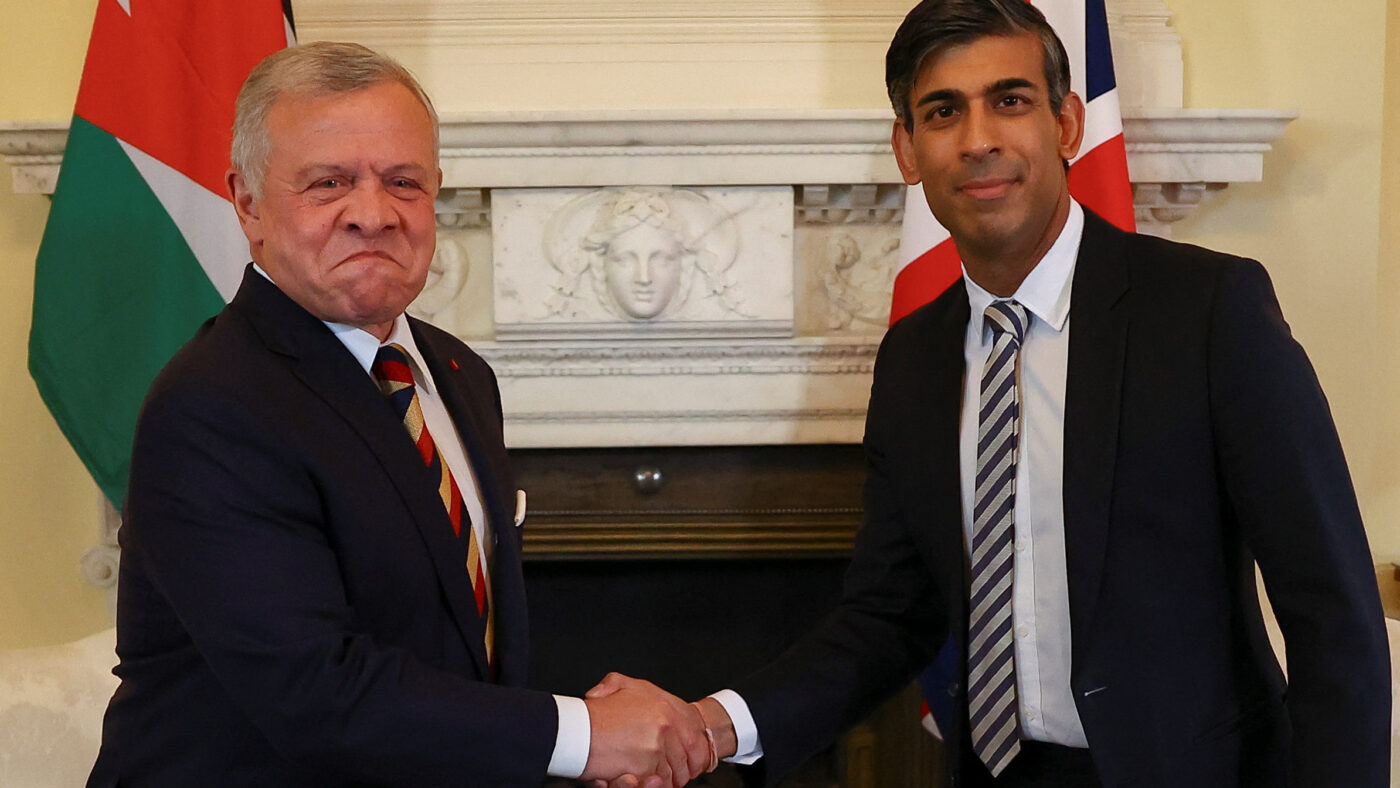There is a tendency in British politics for prime ministers, as the wounds of office accumulate and their domestic popularity wanes, to take comfort, and an increasing interest, in international affairs. At home, they are beset by difficulties; overseas, they are a statesman.
It says something about the late-stage conservatism state of the government that Rishi Sunak seems to be speed-running this process.
The first big sign that the Prime Minister was seeking refuge in international statecraft was the Windsor Framework, his purported solution to the customs border in the Irish Sea created by his predecessors’ cack-handed handling of Northern Ireland.
To some, it signalled that we finally had a leader both willing and able to do business with the European Union. And perhaps it did. Less important seems to be the fact that it hasn’t actually resolved the political deadlock in Ulster, in large part because it hasn’t actually ameliorated the border to anything like the extent government spinners initially claimed.
In itself, that isn’t especially surprising. The problem in Northern Ireland is that Dublin and Brussels’ demands are straightforwardly incompatible with the economic integrity of the United Kingdom, and the Unionists aren’t going to pretend otherwise just because politicians in London want to talk about something else now.
But it still feels a bit telling that Sunak was apparently much more comfortable doing deals with the EU than attending to the nitty-gritty of how that deal would actually land, or even ensuring that he had someone in the Northern Ireland Office team who commanded unionist confidence.
Since then, we have had further evidence that the Downing Street team’s feel for domestic issues may be genuinely bad. I’ve written elsewhere about the gulf between Sunak’s self-description as a bold reformer and the timidity of his policy offering, but it is nonetheless remarkable that he or his advisors were ‘bruised’ by the failure of his scrappy conference speech to significantly shift the dial for a government 20 points behind in the polls.
Now once again we see the Prime Minister retreating to global statesman mode. The UK will shortly play host to a global summit on AI safety, and Sunak apparently plans to go big on warning about the potential dangers this new technology poses – even to the extent of floating a ‘robot tax’ to protect jobs from the threat of digital automation.
This is an interesting topic, in the abstract, although it’s a bit bleak that the best response a self-styled ‘tech bro’ like Sunak can come up with is a boilerplate effort to crush innovation with taxes. But again, it’s not the sort of thing that’s likely to be top of many voters’ minds when they enter the polling station next year.
Labour, by contrast, are zeroing in on domestic issues such as housing and the cost of living, both of which were all but entirely absent from the Prime Minister’s headline speech to the Conservative Party Conference. Sunak might be able to reel off statistics at PMQs [a format at which he performs well, at least tactically], but the Tories’ broader silence on both issues speaks volumes.
It may be that Sunak believes that his party is too divided on those issues for him to be able to make a bold case: housing splits the party deeply between its long-term future and the short-term interests of many of its MPs, whilst public spending and the size of the state are sores the Truss disaster has done little to sooth.
But it may also be that the Prime Minister simply doesn’t have a grand vision for Britain. One thing I’ve noted since he became leader is that, unlike his predecessors, I genuinely couldn’t tell you what dramatic changes would happen if you handed Sunak a magic lamp and three wishes. The policies on which he based his first leadership bid were easily cast aside for his second one.
To some extent, that’s understandable. He came to power in almost uniquely unpropitious circumstances, having to ‘steady the ship’ after Liz Truss and then grapple with the fallout from the war in Ukraine and global price shocks. Most prime ministers are at the apex of their power when they first pass the door of Number Ten; that was not true for Sunak.
However, that does mean that when Downing Street tries to get us excited about what the UK could achieve with one more year of Rishi, the year we’ve already had gives us little to go on. He has, to date, governed extremely timidly.
And whatever the reason for his timidity, it bodes ill for a party which is currently on course for an historic defeat at the next election. There is little good in steady-as-she-goes when your trajectory is as bad as is the Conservatives’ at present.
Click here to subscribe to our daily briefing – the best pieces from CapX and across the web.
CapX depends on the generosity of its readers. If you value what we do, please consider making a donation.


